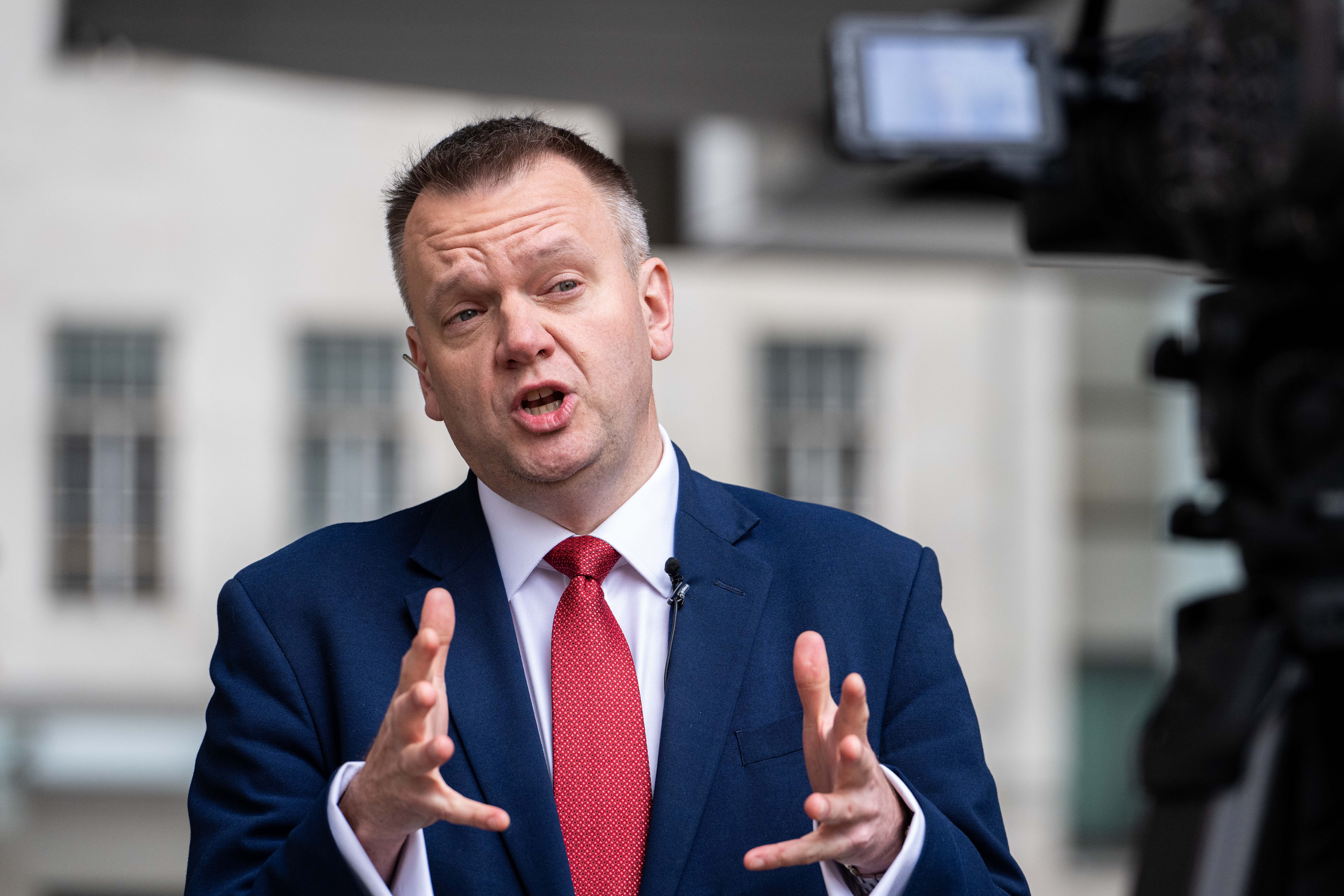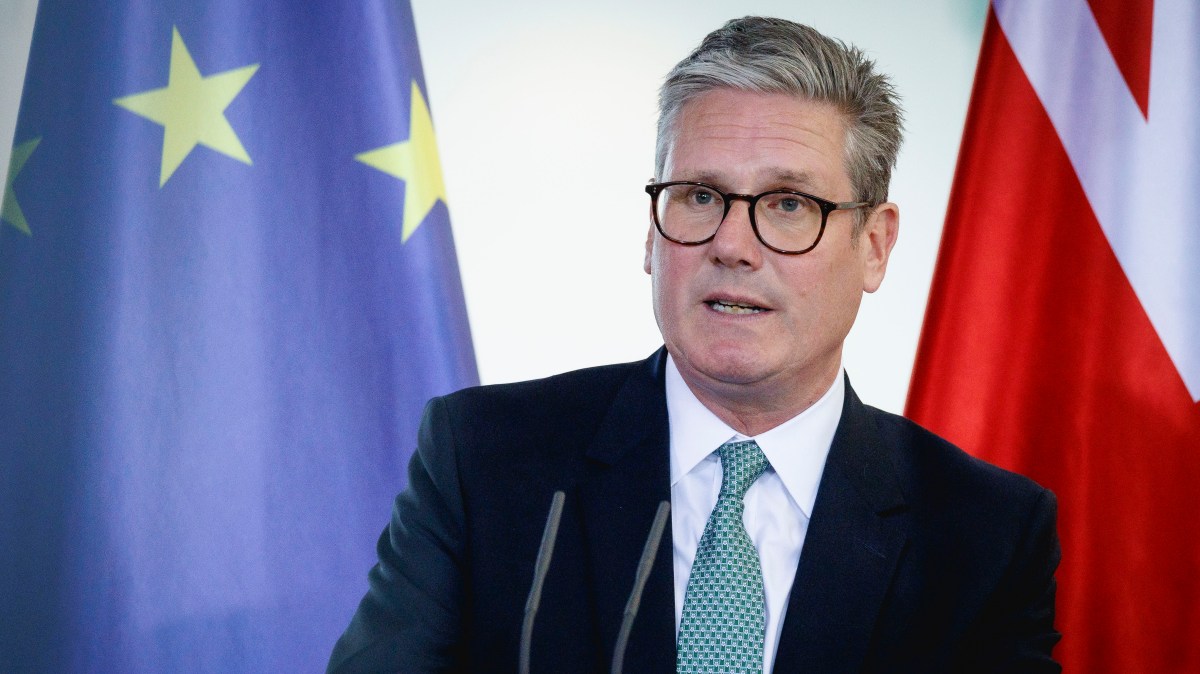Sir Keir Starmer’s reset with the European Union have gone down to the wire, as Brussels holds firm on its demand to tie a food export deal to long-term access to British fisheries.
Talks have continued late into the night, with EU officials threatening to collapse the deal unless the prime minister agreed to give Brussels greater leverage in future negotiations on fish.
British officials remained confident a deal would be struck in time for the first post-Brexit UK-EU summit in London on Monday. Agreement has already been reached on subjects including co-operation on defence, migration and the principle of a youth mobility deal.

European leaders including Donald Tusk, President Zelensky, President Macron and Starmer have been working closely together towards peace in Ukraine
LEON NEAL VIA AP
In a surprise to British negotiators, however, the EU is trying to use Starmer’s desire to announce a deal at the summit to force a concession that would make access to fisheries the explicit price of an agreement to ease checks on UK food exports to Europe.
British officials acknowledged the attempt to link a deal on food standards to one on fish was the main outstanding problem, but insisted Starmer would not sign an agreement that was not in the national interest.
The prime minister is ready to face down accusations of “Brexit betrayal” from opponents who have called Monday’s meeting the “surrender summit”. He told The Times on Saturday that voters were looking “forward not backwards” and did not want to “relitigate the last nine years” of rows over Europe.
He will instead try to sell the deal on “pragmatic grounds” of jobs and security. Senior government figures dismissed attempts to fight battles on issues such as the European Court of Justice as out of touch with voters who increasingly favour closer ties.
Keir Starmer: Shouting at EU is not in the UK’s national interest
David Lammy, the foreign secretary, said the meeting would show “a new era in UK-EU relations has begun” after the battles of the Brexit years. Ministers promised that a deal with the EU would improve growth, lower energy bills and improve border security.
A food standards deal on “sanitary and phytosanitary” regulations is seen by Britain as an important benefit of the deal, easing onerous veterinary checks that are blamed for a 21 per cent fall in agricultural exports to the EU since Brexit.
Nick Thomas-Symonds, Britain’s chief negotiator with the EU, told Times Radio on Sunday that it would have “huge advantages” for British businesses when food was “literally rotting on our border” waiting for approvals.
Labour’s manifesto promised to seek such a deal and Thomas-Symonds said he had been “negotiating very hard”, signalling that Britain was prepared to sign up to future EU food standards rules as the price of agreement.

Nick Thomas-Symonds
THOMAS KRYCH/ZUMA PRESS
The sticking point has been an EU demand for an explicit link to an agreement on continued access for European fishing boats to British waters. Britain has been prepared to extend existing fishing quotas, currently 75 per cent of pre-Brexit levels, for another four years. The EU is stipulating that any future attempt to renegotiate quotas would allow it to reopen the food standards deal, meaning it could threaten to reimpose border checks.
• EU ‘reset’ could put back Britain’s freedom to develop gene-edited crops
Thomas-Symonds said Britain was prepared to agree to follow future EU directives on food standards as the price of reduced border checks, with ultimate oversight from the European Court of Justice. He said parliament would be given a say in following future rules, which would be “sovereign decisions” for Britain. “Where we think it is in our national interest to align on common standards we will, and we’ll do it because it is about jobs growth and opportunity,” he said.
Alex Burghart, the shadow Cabinet Office minister, said this “dynamic alignment” with EU rules was a “surrender of Britain’s sovereignty”.
Thomas-Symonds dismissed such “ideological” concerns. He said: “We are a high standards jurisdiction, so is the EU, it’s about pragmatic choices to make sure that businesses can trade more easily.”
A deal on security co-operation is expected to be announced that could lead to British troops operating alongside EU forces, and more intelligence sharing on illegal migration as Starmer seeks to make good on his promise to “smash the gangs”. Britain will also agree in principle to negotiate a youth mobility deal allowing Europeans aged 18-30 to live and work in the UK.
Britain wants a cap on numbers of about 100,000 a year and a time limit on visas, while the EU is resisting such a cap. Thomas-Symonds said the scheme would have to be “smart and controlled” and must be consistent with the objective of bringing down net migration.
